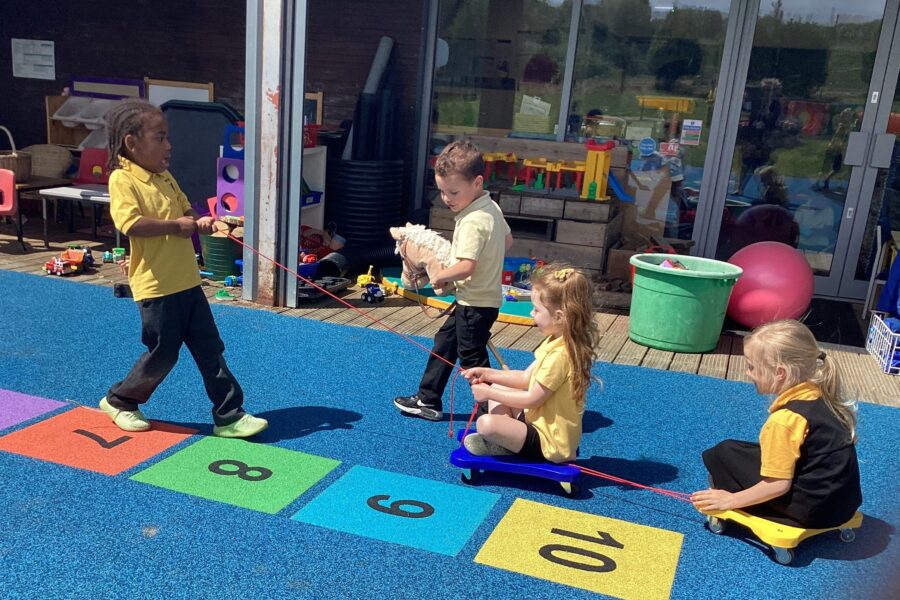
Play is a fundamental aspect of childhood that significantly impacts children’s health, wellbeing, and development. Play is not just for fun. Young children learn through play; it is how they explore and make sense of the world. Through play, children develop motor skills, learn to solve problems, enhance their creativity, and build social and communication skills by interacting with others. Play also contributes to emotional resilience and regulation, helping children express their feelings and cope with stress.
They can learn everything they need to in the Early Years Foundation Stage Curriculum (EYFS) and more! But more than that, research shows that play is a primal survival instinct just as eating and sleeping is, because it is vital for children’s brain growth and development.
Children do not keep still to play! They run, stretch, jump, crawl, reach, and move. In fact, all the activities suggested by the Chief Medical Officer’s guidance for physical activity for under 5s are essentially movements of play. Through active play, young children develop core, muscle, and bone strength. Active children sleep better and create lasting healthy habits.
In the Early Years, opportunities to develop and practise movements enable children to develop key movement skills such as balance, proprioception, and laterality, supporting their readiness for school and beyond.
Play does not look the same for all children. To adults, it might look boring, repetitive, or silly, or just not what your idea of play is. This can be particularly noticeable for neurodivergent children. But play should be child-initiated, child-led, and intrinsically motivated. This type of play builds the body and wires the brain for the skills we use throughout our life.
The North East has higher rates of child poverty, obesity, inactivity, and lower levels of preschool development compared to national averages. These challenges disproportionately affect certain groups in our communities, including low-income families, children with experience of the care system, and those with disabilities.
Through our Ready to Play project, funded by Child Health and Wellbeing Network, part of the NHS North East and North Cumbria ICB, we have been supporting professionals who work with children facing educational and health inequalities to use active play to boost health, wellbeing, and learning in the early years.
Organisations received free play equipment and resources, as well as training by play expert Ben Kingston-Hughes to deepen their understanding of the power of play and get loads of ideas of how to use their new equipment. So far, our programme has reached over 14,000 children across Northumberland and Tyne & Wear.
In the first five years, children’s brains and bodies develop more than at any other point in life. Investment in early childhood is one of the best things we can do to improve the long-term health, well-being, and happiness of our society.
So perhaps, we should just let children play.